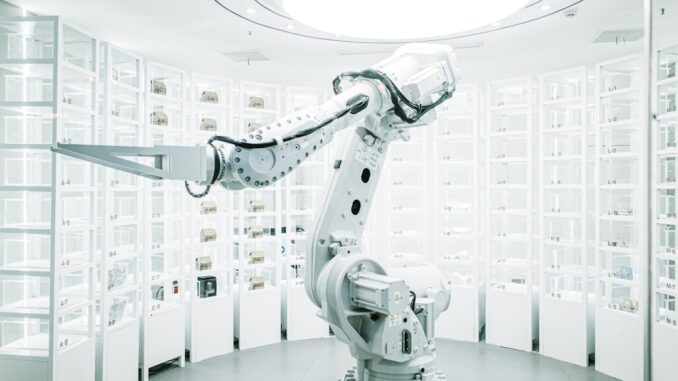
Summary
AI and machine learning are poised to revolutionize healthcare in 2025, impacting workflow, workforce development, and patient safety. This transformation will optimize processes, personalize training, and improve diagnostics, leading to better patient outcomes and a more efficient healthcare system. The increasing integration of AI in healthcare signifies a shift towards proactive and personalized care.
Main Story
The rapid advancement of artificial intelligence (AI) and machine learning (ML) is revolutionizing industries across the globe, and healthcare stands as a prime example of its transformative power. In 2025, AI is poised to significantly boost workflow efficiency, enhance workforce development, and elevate patient safety standards, ushering in a new era of proactive and personalized care.
Optimizing Workflow with Intelligent Automation:
AI-powered tools are streamlining administrative tasks, optimizing resource allocation, and accelerating decision-making processes. Intelligent scheduling systems consider staff availability, skill sets, and patient needs to create balanced and efficient schedules, minimizing conflicts and reducing overtime costs. AI can also predict future demand, identify potential staffing shortages, and recommend appropriate adjustments, ensuring optimal resource utilization. By automating routine tasks, AI frees up healthcare professionals to focus on direct patient care, improving job satisfaction and overall productivity.
Personalized Workforce Development through AI-powered Learning:
AI is transforming workforce development by offering personalized learning experiences tailored to individual needs. AI algorithms analyze employee performance data, identify skill gaps, and recommend targeted learning resources. This personalized approach enhances employee engagement and accelerates professional growth. AI-powered platforms also enable adaptive learning experiences, tailoring content and delivery methods to individual learning styles, maximizing training effectiveness. AI-driven simulations and virtual reality training provide realistic scenarios for practice and skill development, preparing healthcare professionals for complex situations.
Elevating Patient Safety through Enhanced Diagnostics and Predictive Capabilities:
AI is playing a crucial role in enhancing patient safety by improving diagnostic accuracy and predicting potential risks. Machine learning algorithms analyze vast amounts of patient data, identifying patterns and anomalies that might be missed by human observation. This leads to earlier and more accurate diagnoses, enabling timely interventions and improving patient outcomes. AI can also predict potential adverse events, such as medication interactions or hospital-acquired infections, allowing for proactive measures to mitigate risks. AI-powered systems monitor patient vital signs and alert healthcare professionals to any concerning changes, ensuring prompt attention and preventing complications.
The Future of AI in Healthcare:
The integration of AI in healthcare signifies a shift from reactive to proactive care. As AI algorithms become more sophisticated and data availability increases, the potential applications of AI in healthcare will continue to expand. AI is expected to play an increasingly important role in drug discovery, personalized medicine, and remote patient monitoring, further transforming the healthcare landscape and improving patient care. The future of healthcare is undeniably intertwined with the continued advancement of AI, promising a more efficient, personalized, and proactive approach to healthcare delivery.


Be the first to comment